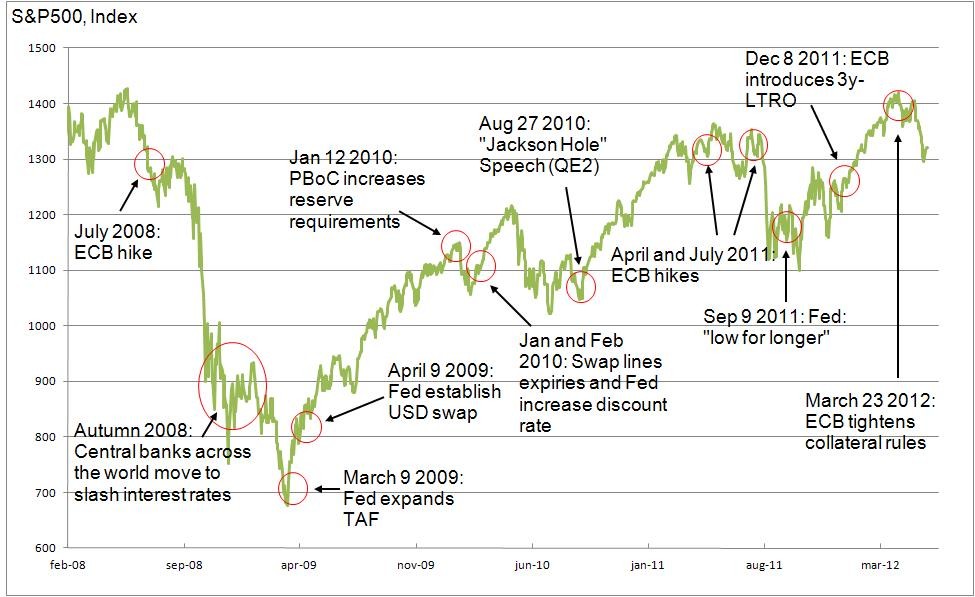Hedge world 8 Fund Types To Use In A Recession
Post on: 5 Апрель, 2015 No Comment

8 Fund Types To Use In A Recession
The herd instinct kicks into overdrive when mutual fund investors hear
the word recession and news reports show stock prices dropping. Fears
of further declines and mounting losses chase investors out of stock
funds and push them toward bond funds in a flight to safety. It’s an
effective tactic for investors who are seeking to avoid risk and are
smart or lucky enough to sell while their portfolios are still on the
positive side — but it’s not the only strategy available to combat
tough times. Read on for a look at bond funds that tend to outperform
in tough market conditions.
*Tutorial*: Mutual Fund Tutorial
1. Federal Government Bond Funds
There are several types of bond funds that are particularly popular
with risk-averse investors. Funds made up of U.S. Treasury bonds
lead the pack, as they are considered to be one of the safest.
Investors face no credit risk because the government’s ability to
levy taxes and print money eliminates the risk of default and provides
principal protection.
Bond funds that invest in mortgages securitized by the Government
National Mortgage Association (Ginnie Mae) are also backed by the full
faith and credit of the U.S. government. Most of the mortgages
(typically mortgages for first-time homebuyers and low-income
borrowers) securitized as Ginnie Mae mortgage-backed securities
(MBS) are those guaranteed by the Federal Housing Administration
(FHA), Veterans Affairs or other federal housing agencies.
*2. Municipal Bond Funds*Next on the list are municipal bond funds.
Issued by state and local governments, these investments leverage
local taxing authority to provide a high degree of safety and security
to investors. They carry a greater risk than funds that invest in
4. Money Market Funds
When it comes to avoiding recessions, bonds are certainly popular, but
they aren’t the only game in town. Ultra-conservative investors and
unsophisticated investors often stash their cash in money market
funds. While these funds do provide a high degree of safety, they
should only be used for short-term investment.
*5. Dividend Funds*Contrary to popular belief, seeking shelter during
tough times doesn’t necessarily mean abandoning the stock market
altogether. While investors stereotypically think of the stock market
as a vehicle for growth, share price appreciation isn’t the only game
in town when it comes to making money in the stock market. For
example, mutual funds that focus on dividends can provide strong
returns with less volatility than funds that focus strictly on growth.
*6. Utilities-Based Mutual Funds*Utilities-based mutual funds and
funds that invest in consumer staples are less aggressive stock fund
strategies that tend to focus on investing in companies that pay
predictable dividends.
*7. Large-Cap Funds*Traditionally, funds that invest in large-cap
stocks tend to be less vulnerable than those that invest in small-cap
stocks, as larger companies are generally better positioned to endure
tough times. Shifting assets from funds that invest in smaller, more
aggressive companies to those that bet on blue chips provides a way to
cushion your portfolio against market declines without fleeing the
stock market altogether.
8. Hedge Funds and Foul Weather Funds
For wealthier individuals, investing a portion of your portfolio in
hedge funds is one idea. Hedge funds are designed to make money
regardless of market conditions. Investing in a foul weather fund is
another idea, as these funds are specifically designed to make money
when the markets are in decline.
In both cases, these funds should only represent a small percentage of
your total holdings. In the case of hedge funds, hedging is actually
the practice of attempting to reduce risk, but the actual goal of
most hedge funds today is to maximize return on investment. The name
is mostly historical, as the first hedge funds tried to hedge against
the downside risk of a bear market by shorting the market (mutual
funds generally can’t enter into short positions as one of their
primary goals). Hedge funds typically use dozens of different
strategies, so it isn’t accurate to say that hedge funds just hedge
risk. In fact, because hedge fund managers make speculative
investments, these funds can carry more risk than the overall market.
In the case of foul weather funds, your portfolio may not fare well
when times are good.
Diversification: A Strategy for Any Market
While bond funds and similarly conservative investments have shown
their value as safe havens during tough times, investing like a
lemming isn’t the right strategy for investors seeking long-term
growth. Trying to time the market by selling your stock funds before
they lose money and using the proceeds to buy bond funds or other
conservative investments and then doing the reverse just in time to
capture the profits when the stock market rises is a risky game to
play. The odds of making the right move are stacked against you. Even
if you achieve success once, the odds of repeating that win over and
over again throughout a lifetime of investing simply aren’t in your














